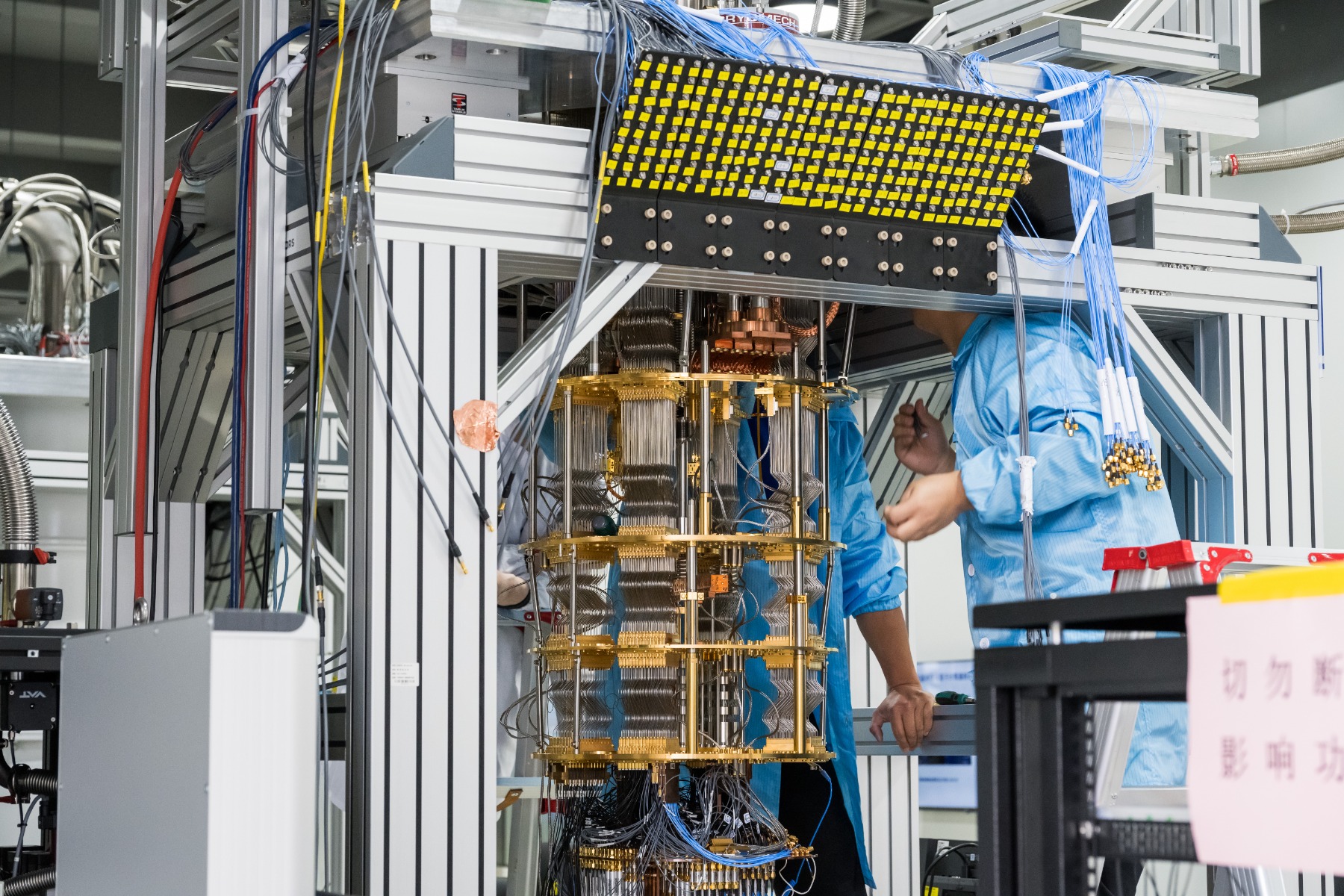
Workers calibrate and install the China's independently developed third-generation superconducting quantum computer. Photo:Courtesy: Anhui Quantum Computing Engineering Research Center
Chinese scientists successfully conducted the world's first fine-tuning task of a billion-parameter artificial intelligence (AI) large model on China's independently developed third-generation superconducting quantum computer named Origin Wukong, the Global Times learned from the Anhui Quantum Computing Engineering Research Center on Monday.
The quantum computer is powered by Wukong, a 72-qubit indigenous superconducting quantum chip. It is one of the country's most advanced programmable and deliverable super-conducting quantum computers.
On the quantum chip of Origin Wukong, a single batch of data can generate hundreds of quantum tasks for parallel processing. Experimental data showed that the optimized model achieved a 15-percent reduction in training loss on a psychological counseling dialogue dataset, and the accuracy rate for the mathematical reasoning task increased from 68 percent to 82 percent, the research center noted.
Industry analysts said that this experiment has not only validated the feasibility of using quantum computing to achieve lightweighting of large language models (LLMs) but also laid a new path to address "computing power anxiety."
"It's like equipping a classical model with a 'quantum engine', allowing the two to work in synergy," Dou Menghan, vice president of Origin Quantum Computing Technology Co and deputy director of the Anhui Quantum Computing Engineering Research Center, told the Global Times on Monday.
According to the research center, the experiment demonstrated that even with a 76-percent reduction in parameters, training effectiveness improved by 8.4 percent.
"This is a huge step forward in the field of quantum computing," said Chen Zhaoyun, a deputy researcher at the Institute of Artificial Intelligence at the Hefei Comprehensive National Science Center. He added that it is the first time that quantum computing has been used in real-machine operations for large model tasks, proving that the existing hardware is capable of supporting the fine-tuning of LLMs.
Fine-tuning is the process of taking a pre-trained model, often an LLM or foundation model, and adapting it for specific applications such as medical diagnosis or financial risk management. The operation process can help achieve higher accuracy and relevancy when addressing specific needs of companies.
Origin Wukong has completed more than 350,000 quantum computing tasks since it went into operation on January 6, 2024, covering a wide range of industries, including computational fluid dynamics, finance and biomedicine. Users from 139 countries or regions have accessed Origin Wukong remotely, said the company.




